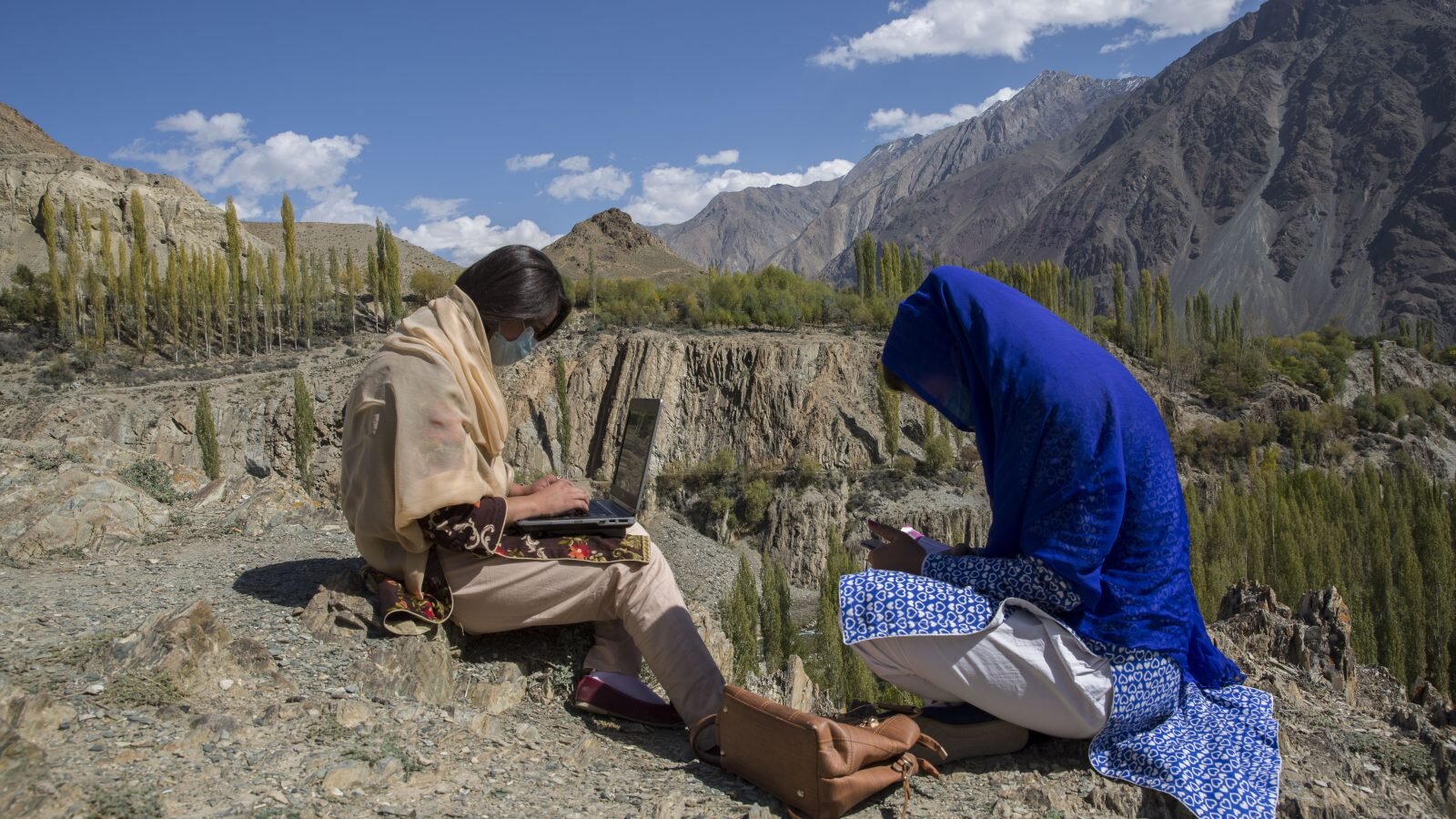The Hills are Alive with #internet4gilgitbaltistan
Photo by Saiyna Bashir
THE PakistanI STATE uses the internet as a means of exerting control — and in a remote part of the country, citizens are starting to fight back.
WHEN HER UNIVERSITY emailed to announce classes had moved online, Seher Ibrahim Shah did not find out in time because she didn’t have internet. That was the first problem. In her village, tucked between some of the highest mountains in the world, even phone signals are hard to come by. When classes began in earnest, things got worse. There was a lockdown in the area, courtesy of Covid-19, so she couldn’t travel anywhere else. Where would she go, anyway? Internet all across Gilgit-Baltistan was unreliable. Instead, she began climbing mountains, hoping to find a stronger connection.
Occasionally, she’d catch a signal, and email and WhatsApp messages would begin whirling in, her phone writhing with notifications. She’d watch her classmates’ conversations unfold belatedly — sometimes weeks later — referencing chapters she hadn’t been able to download, terms she hadn’t yet come across. She felt herself sinking, overcome by a sense of life passing her by.
While classes were in session, she’d hike for an hour and settle under a tree. As her readings dribbled, byte by byte, onto her laptop, she played Candy Crush on her phone to kill time. Gahkuch Valley yawned below, pretty as a postcard: glittering streams swerving through mountains, solemn and immense, birdsong everywhere. Gilgit-Baltistan, her home, was where city people flocked from all over the country in the summer to escape modern life.
Her laptop kept blinking: “Internet connected.” “Internet disconnected.”
Connected. Disconnected. Connected. Disconnected. It was enough to drive you mad.
Most summers, Pakistani social media teems with vacation photos from Gilgit-Baltistan: pristine lakes and peaks hashtagged #nofilter #paradise #heavenonearth. This year, as tourism came to a near standstill over the summer, the closure of universities and workplaces sent hundreds of thousands students and professionals back to the region, causing internet usage to skyrocket by 250% by the end of June, a staggering figure given that its population is less than 2 million. In July, a new category of photos began emerging: angry students hunched over laptops next to those familiar lakes and mountains, often on the bare ground, under the naked sun, or lugging fat books up rocky trails.
“We are students not mountaineers.”
“We have breathtaking views with literally breathtaking internet.”
Soon, #Internet4GilgitBaltistan began trending throughout Pakistan.
